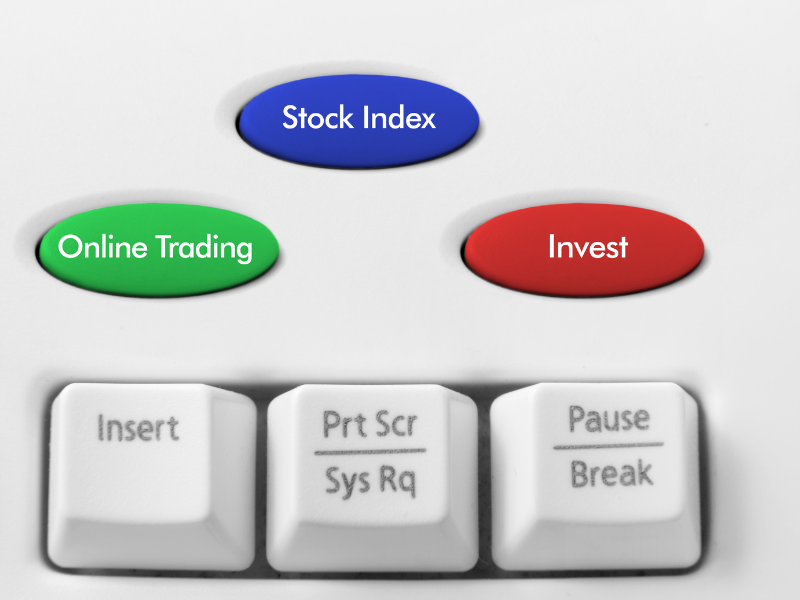Introduction
Online trading has revolutionized the way individuals invest and manage their finances. With just a few clicks, you can buy and sell stocks, commodities, currencies, and other financial instruments from the comfort of your home. This article delves into the intricacies of online trading, highlighting its benefits, challenges, and strategies to help you succeed in this dynamic field.
What is Online Trading?
Online trading refers to the buying and selling of financial assets over the Internet. It provides investors with a platform to trade in various markets, including stocks, forex, commodities, and cryptocurrencies. The process is facilitated by online brokers who offer trading platforms with tools and resources to help traders make informed decisions.
Advantages of Online Trading
Accessibility and Convenience
One of the primary advantages of online trading is its accessibility. Traders can access their accounts and execute trades from anywhere, at any time, as long as they have an internet connection. This convenience allows for greater flexibility and the ability to respond quickly to market movements.
Lower Costs
Online trading platforms typically charge lower fees and commissions compared to traditional brokerage firms. This reduction in costs makes trading more affordable, allowing investors to retain more of their profits.
Advanced Tools and Resources
Most online trading platforms offer a range of tools and resources to assist traders. These include real-time market data, technical analysis tools, educational materials, and news updates. These resources empower traders to make informed decisions and develop effective trading strategies.
Enhanced Control
Online trading gives investors greater control over their trades. They can manage their portfolios, set stop-loss and take-profit levels, and execute trades without the need for intermediary brokers. This autonomy allows for more precise and timely decision-making.
Challenges of Online Trading
Market Volatility
Financial markets can be highly volatile, with prices fluctuating rapidly. This volatility can result in significant gains but also substantial losses. Traders need to be prepared for the inherent risks and develop strategies to manage them effectively.
Technical Issues
Online trading relies heavily on technology, and technical issues such as platform outages, connectivity problems, or software glitches can disrupt trading activities. Traders should have contingency plans in place to mitigate the impact of such issues.
Emotional Discipline
The ease of online trading can sometimes lead to impulsive decisions driven by emotions. Successful trading requires emotional discipline, a clear strategy, and adherence to risk management principles. Traders must avoid making hasty decisions based on fear or greed.
Types of Online Trading
Stock Trading
Stock trading involves buying and selling shares of publicly traded companies. It is one of the most popular forms of online trading, allowing investors to profit from the price movements of individual stocks.
Forex Trading
Forex trading (foreign exchange) involves trading currencies in the global marketplace. It is the largest and most liquid financial market in the world, offering opportunities for profit through currency pair fluctuations.
Commodity Trading
Commodity trading involves buying and selling physical goods like gold, oil, and agricultural products. Traders can speculate on the price movements of these commodities through futures contracts and options.
Cryptocurrency Trading
Cryptocurrency trading has gained immense popularity with the rise of digital currencies like Bitcoin and Ethereum. Traders can buy, sell, and trade cryptocurrencies on specialized platforms, benefiting from their high volatility.
Strategies for Successful Online Trading
Research and Education
Thorough research and continuous education are crucial for success in online trading. Traders should stay informed about market trends, economic indicators, and the latest news. Many online platforms offer educational resources, including webinars, tutorials, and articles.
Technical Analysis
Technical analysis involves analyzing historical price data and chart patterns to predict future market movements. Traders use tools like moving averages, trend lines, and indicators to identify potential trading opportunities.
Risk Management
Effective risk management is vital to protect capital and minimize losses. Traders should set stop-loss orders, diversify their portfolios, and avoid over-leveraging their positions. Establishing a risk-reward ratio for each trade can also help in maintaining disciplined trading practices.
Developing a Trading Plan
A well-defined trading plan outlines an individual’s trading goals, risk tolerance, and strategies. It serves as a roadmap for making consistent and informed trading decisions. Sticking to the plan and reviewing it regularly can improve trading performance.
Choosing an Online Trading Platform

When selecting an online trading platform, consider the following factors:
- User-Friendly Interface: A platform with an intuitive and easy-to-navigate interface can enhance your trading experience.
- Security: Ensure the platform has robust security measures, including encryption and two-factor authentication, to protect your account and personal information.
- Fees and Commissions: Compare the fees and commissions charged by different platforms to find one that offers competitive rates.
- Customer Support: Reliable customer support is essential for resolving any issues or answering questions promptly.
- Tools and Resources: Look for platforms that offer a wide range of tools and resources to support your trading activities.
The Role of Technology in Online Trading
Algorithmic Trading
Algorithmic trading involves using computer programs to execute trades based on predefined criteria. These algorithms can analyze vast amounts of data and execute trades at speeds far beyond human capabilities. Algorithmic trading can be used for various strategies, including high-frequency trading (HFT), where traders seek to profit from small price changes over a large number of trades.
Artificial Intelligence and Machine Learning
Artificial intelligence (AI) and machine learning (ML) are increasingly being integrated into online trading platforms. These technologies can analyze historical data and identify patterns that might be missed by human traders. AI-driven trading bots can make decisions and execute trades autonomously, potentially improving trading efficiency and profitability.
Mobile Trading
The rise of mobile trading apps has made it even easier for traders to manage their portfolios on the go. These apps offer the same functionality as desktop platforms, allowing users to monitor markets, execute trades, and access research and analysis from their smartphones or tablets. The convenience of mobile trading ensures that traders never miss an opportunity, no matter where they are.
Regulation and Compliance in Online Trading
Regulatory Bodies
Online trading is regulated by various authorities to ensure market integrity and protect investors. In the United States, the Securities and Exchange Commission (SEC) and the Financial Industry Regulatory Authority (FINRA) oversee the securities markets. In the UK, the Financial Conduct Authority (FCA) regulates financial services, including online trading platforms.
Compliance Requirements
Traders must adhere to specific compliance requirements, including know-your-customer (KYC) procedures, anti-money laundering (AML) regulations, and tax reporting obligations. Compliance ensures transparency and helps prevent fraudulent activities. Reputable trading platforms implement robust compliance measures to protect their users and maintain trust.
Psychological Aspects of Online Trading
Emotional Control
Emotional control is crucial for successful online trading. The markets can be unpredictable, and traders often face situations that can trigger fear or greed. Learning to manage these emotions and make rational decisions based on analysis rather than impulse is essential. Techniques such as mindfulness and keeping a trading journal can help traders maintain emotional discipline.
Patience and Persistence
Successful trading requires patience and persistence. It’s important to understand that not every trade will be profitable, and losses are a part of the trading journey. Developing a long-term perspective and focusing on consistent, disciplined trading can lead to sustained success over time.
Future Trends in Online Trading
Blockchain and Cryptocurrency
The advent of blockchain technology and cryptocurrencies has introduced new opportunities and challenges in the trading world. Blockchain’s transparency and security features have the potential to revolutionize trading platforms, while cryptocurrencies offer a new asset class for traders. As the regulatory environment evolves, these technologies are likely to play an increasingly significant role in online trading.
Social Trading
Social trading is a trend that allows traders to share information and strategies with each other. Platforms like eToro enable users to follow and copy the trades of experienced traders. This collaborative approach can help beginners learn from seasoned professionals and improve their trading skills.
Sustainable Investing
Sustainable investing, which focuses on environmental, social, and governance (ESG) criteria, is gaining popularity. Traders are increasingly considering the impact of their investments on society and the environment. Online trading platforms are responding by offering more ESG-focused investment options.
Educational Resources for Aspiring Traders
Online Courses and Webinars
Numerous online courses and webinars are available to help traders enhance their knowledge and skills. These resources cover a wide range of topics, from basic trading principles to advanced technical analysis and risk management strategies. Platforms like Coursera, Udemy, and Investopedia offer comprehensive courses for traders of all levels.
Books and Publications
Books remain a valuable resource for traders seeking in-depth knowledge. Classics like “A Random Walk Down Wall Street” by Burton Malkiel, “The Intelligent Investor” by Benjamin Graham, and “Market Wizards” by Jack D. Schwager provide timeless insights into trading strategies and market psychology.
Trading Simulators
Trading simulators allow aspiring traders to practice their skills in a risk-free environment. These tools simulate real market conditions, enabling users to develop and test their strategies without risking actual capital. Many online trading platforms offer demo accounts for this purpose.
Conclusion
Online trading has transformed the financial landscape, offering unparalleled access and opportunities for individual investors. By leveraging advanced technology, staying informed through continuous education, and adhering to disciplined trading strategies, traders can navigate the complexities of the markets with confidence. As the industry evolves, staying adaptable and open to new trends and tools will be key to achieving long-term success in online trading

